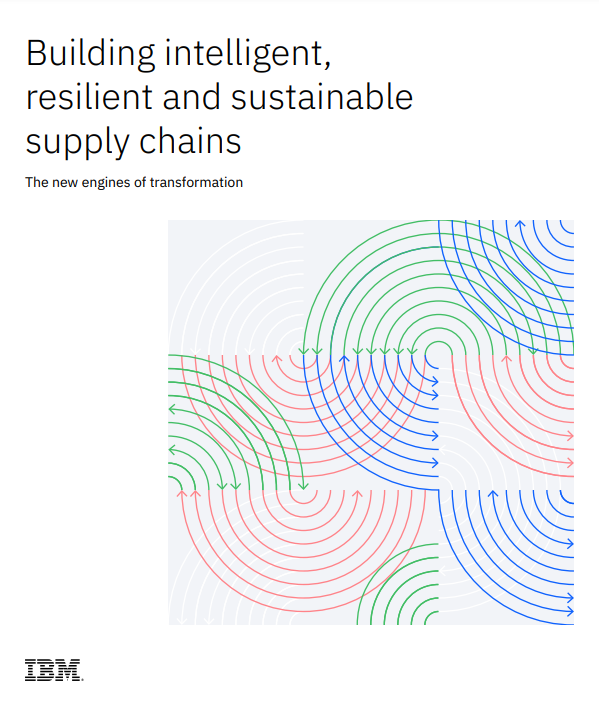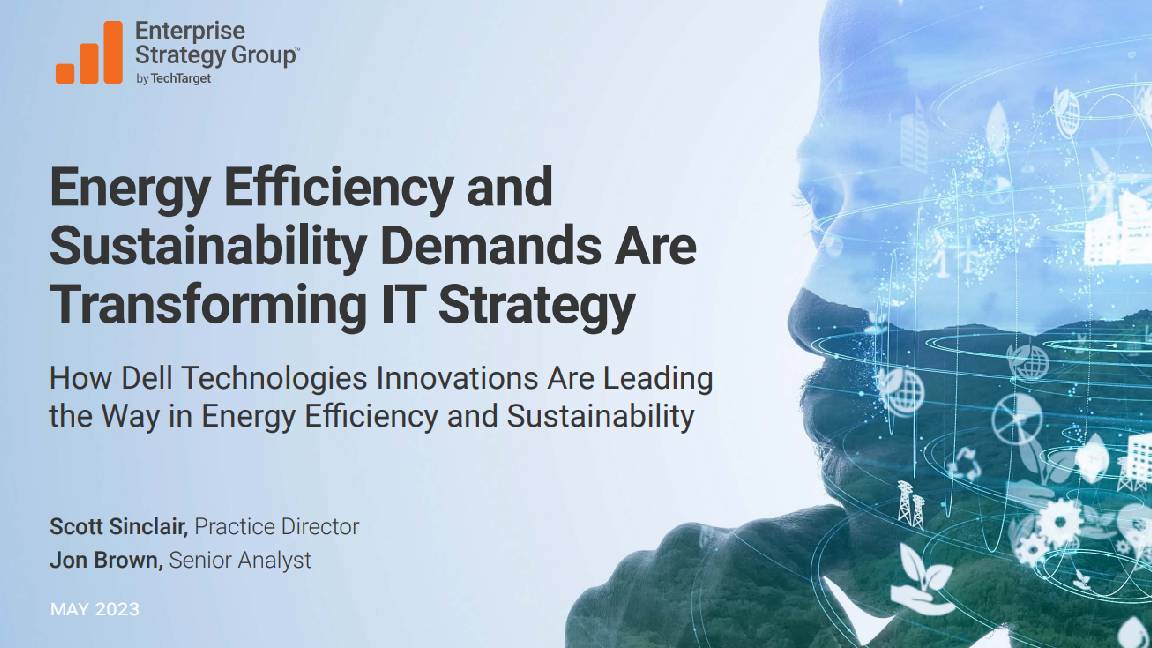Businesses bet on sustainability to tackle disruption, says Gartner
Business leaders overwhelmingly link sustainability investment to short and long-term improvements, and investment will increase year-on-year


The majority (86%) of business leaders plan to increase their organisation's investment in sustainability initiatives as a way to protect against disruption, according to new research.
Most leaders (87%) whose companies are already engaged in sustainability initiatives expect to expand these in 2023 and 2024, linking the investments made so far to improvements in company operations, as well as to supply chain savings.
Respondents identified that a number of costs related to operations can be mitigated through sustainability investments, with energy consumption named by 65% of those surveyed, and business travel by 42%. Other costs that were mentioned include customer transactions (40%) and productivity (33%).
83% of respondents also said that such investments have created value in both the short and long term for their organisation, with costs outweighed by immediate efficiency improvements and the promise of a more stable future for their company.
“Sustainability enables businesses to cope with disruption,” said Kristin Moyer, distinguished VP analyst at Gartner.
“Economic uncertainty, geopolitical conflict and escalating materials and energy costs are forcing businesses to re-examine all forms of expenditure. This focus on essentialism, in combination with increasing stakeholder desire to see progress on environmental, social and governance (ESG) goals, creates new opportunities for organisations to grow while mitigating cost and risk.”
With firms facing rising energy bills driven in large part by the invasion of Ukraine, further Gartner research has predicted that data centre costs could increase by 40% in the immediate future.
Sign up today and you will receive a free copy of our Future Focus 2025 report - the leading guidance on AI, cybersecurity and other IT challenges as per 700+ senior executives
Investment in software sustainability, as well as more efficient hardware, will be critical in handling these costs, while simultaneously reducing energy impact that will worsen the climate crisis, the analyst house concluded.
The survey was conducted by Gartner across the APAC, North American, and European regions in June and July 2022, reaching 221 respondents in executive roles at companies with annual revenue of $250 million or more.
Although a range of financial benefits stemmed from sustainability programmes, the report also made clear that business leaders see customers as the primary driving force behind greater investment in this area. Customers were identified as the group building pressure behind sustainability by the majority of respondents (80%), compared to investors (60%), and regulators (55%).
RELATED RESOURCE

Building intelligent, resilient and sustainable supply chains
The new engines of transformation
57% positively linked enterprise-wide sustainability programmes with their income results, although only 42% indicated that they are currently using said programmes to drive innovation or growth. However, with the trend of greater investment illustrated in the results of the survey, it is clear that sustainability is seen as a rewarding opportunity.
“On one hand, the returns on investments in sustainability remain unclear in the short term as people experiment and venture - there will be winners and losers,” said Joseph Tabita, SVP of energy and commodities lead at digital transformation consultancy Publicis Sapient.
“On the other hand, it will be the biggest long-term return ever seen when we think about future generations and future relevance of today’s businesses. Reasons to invest are plentiful - providing new revenue streams, accelerating innovation, new forms of customer engagement and providing a glide path away from business models that will be less relevant in the future - for example, Big Oil companies transforming into Energy companies, or countries like Saudi Arabia retooling for a post-fossil fuel world.
“The voice of the customer is a powerful incentive to companies to change, but we also need more pressure and regulation from governments and investors to make sustainable business decisions. The takeaway of the last few COPs is that more is still needed from all participants to accelerate this transformation.”
Because the survey only contacted companies which are currently engaged in sustainability programmes, the results may not be representative of industry-wide investment trends. No statistics are provided, for example, on the number of companies not currently invested in sustainability but who plan to in the coming years.
It follows on from a similar survey conducted by Gartner, which revealed that sustainability is the key strategic technology trend for 2023, as identified by investors. Environmental, social, and governance (ESF) expectations continue to push companies to spend on sustainability schemes, and government regulations in the public sphere have been joined by the growing availability of sustainable technology in the private sphere to ease the transition for companies.
Green growth is seen as a key area of potential among IT decision-makers, and beyond cost savings sustainable technology can be leveraged to improve services for businesses and customers like, across the sector.

Rory Bathgate is Features and Multimedia Editor at ITPro, overseeing all in-depth content and case studies. He can also be found co-hosting the ITPro Podcast with Jane McCallion, swapping a keyboard for a microphone to discuss the latest learnings with thought leaders from across the tech sector.
In his free time, Rory enjoys photography, video editing, and good science fiction. After graduating from the University of Kent with a BA in English and American Literature, Rory undertook an MA in Eighteenth-Century Studies at King’s College London. He joined ITPro in 2022 as a graduate, following four years in student journalism. You can contact Rory at rory.bathgate@futurenet.com or on LinkedIn.
-
 Small businesses are ‘flying blind’ on carbon emissions and struggling to meet sustainability goals – and the blame lies with big tech vendors
Small businesses are ‘flying blind’ on carbon emissions and struggling to meet sustainability goals – and the blame lies with big tech vendorsNews Research from Wasabi shows small businesses are struggling to keep track of carbon emissions, and a key factor lies in the poor reporting from tech vendors.
-
 Microsoft just hit a major milestone in its ‘zero waste’ strategy
Microsoft just hit a major milestone in its ‘zero waste’ strategyNews Microsoft says it's outstripping its zero waste targets, recording a 90.9% reuse and recycling rate for servers and components in 2024.
-
 HP’s sustainability drive is paying off for channel partners
HP’s sustainability drive is paying off for channel partnersNews Channel partners that bought into HP’s sustainability program saw sales increase as customers react positively
-
 Beyond the upgrade: How to maximize IT investments and minimize waste
Beyond the upgrade: How to maximize IT investments and minimize wasteHow to maintain optimal performance and productivity with your fleet of hardware and stave off the next upgrade cycle for a bit longer
-
 Nearly half of all digital initiatives still fail – here’s how you can learn from the ‘digital vanguard’ and deliver success
Nearly half of all digital initiatives still fail – here’s how you can learn from the ‘digital vanguard’ and deliver successNews With most digital initiatives are failing to deliver, CIOs are urged to work more closely with other executives
-
 IT services spending set to surge in 2025 as CIOs shift to AI partner solutions
IT services spending set to surge in 2025 as CIOs shift to AI partner solutionsNews Organizations are set to shift from buying generative AI solutions to implementing partner solutions, according to Gartner
-
 Businesses still don’t know who’s accountable for AI at executive level
Businesses still don’t know who’s accountable for AI at executive levelNews Executives are unclear on where the buck stops in terms of AI management
-
 Energy efficiency and sustainability demands are transforming IT strategy
Energy efficiency and sustainability demands are transforming IT strategywhitepaper How Dell Technologies innovations are leading the way in energy effiency and sustainability

